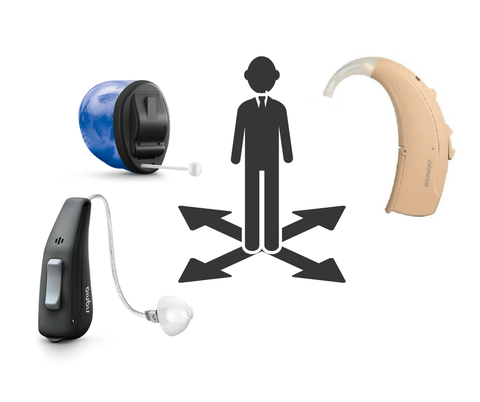
Will Cheap Hearing Aids Be Ok For Me
So, you’ve been told that your hearing is not the best and that it is time for hearing aids. Your Audiologist has given you a breakdown of the different hearing aid technologies and styles and has selected hearing aids for you that will cost somewhere between $6000-$9000 for a pair. You silently gasp and the following questions enter your mind.
Do I really need these hearing aids?
How am I going to afford such hearing aids?
I have friends who spend this kind of money on hearing aids but they end up in the drawer. Will this happen to me?
This scenario plays out hundreds of times a day all over Australia and this article is designed to shed some light for you about the true differences in performance among the basic vs more sophisticated hearing aids and whether this difference is something that will actualise in a physical benefit for you.
It is true that not all hearing aids are created equally and for that matter, neither are we. Although we can take valuable lessons away from seeing what our family and friends have experienced in the hearing aid terrain, it is not helpful nor correct to compare the performance of someone with one type of hearing aid to someone else.
Hearing loss like any physical disability is a personal thing and effects everyone differently. Therefore you shouldn’t expect to see someone perform exactly the same as someone else even if they have the identical type and degree of hearing loss.
The main factors that will impact the efficacy of hearing aids for anyone are:
Age, degree of hearing loss, type of hearing loss, how long someone has had a hearing loss without treating it, how long a person has worn hearing aids for as well as cognitive factors such as auditory processing problems.
As an example, you would expect a younger person to perform better with simpler more basic hearing aids compared to someone who is more advanced in years. This is because as we get older, cognitive factors increase meaning we become less effective at extracting useful auditory information from what we hear. This problem is of course compounded in noisier and more echoey environments.
So the question still remains. Do you need to invest in more sophisticated hearing aids which unfortunately have a high price point? The answer to this is well it depends.
It depends on how much value you put on better hearing. It depends on how often you are in situations where better hearing aids could be more effective for you. It depends on how much your hearing loss is effecting your life and whether it is either preventing you from or reducing your enjoyment of social interactions that add to your quality of life. Ultimately it will depend on all these factors but most importantly it will depend on what you value in life and your lifestyle.
Someone who spends a lot of time at home with minimal noise probably won’t receive enough benefit from a more sophisticated hearing aid to warrant its expense. On the other hand, if you are the kind of person who frequently attends meetings, social gatherings, parties, dinners, restaurants, work engagements and the like, better hearing from better hearing aids in these more demanding situations is probably going to be going to be more beneficial and valuable to you.
So what will I be getting if I spend more money on better hearing aids I hear you ask? Well, what sets hearing aids apart as we move from the basic tier to the more sophisticated levels include: sound quality, performance in noise (e.g. car/restaurant), performance in echo (e.g. large solid floor hall), performance in wind/outdoors (e.g. being able to hear someone while strolling in the wind), automation (e.g. being able to select a cluster of settings or features depending on your listening environment automatically), connect-ability (e.g. smartphone, TV, remote mic), flexibility (e.g. how much customisation can occur), size (e.g. CICs, IICs and smaller RICs), usability (e.g. rechargeable batteries) and sound comfort (e.g. feedback and loud noise management). A hearing aids ability to help with tinnitus relief also improves as we move up the levels.
Only with a thorough hearing assessment including speech testing in noise and a complete understanding of where you would like to see improvements can a clinical recommendation for hearing aids be made. Ideally this should be with a University trained Audiologist who has industry experience and can skilfully match your audiological needs with the most appropriate treatment options.
At Pristine Hearing, we also recommend trials of the various hearing aid technologies so that you as a patient can truly know whether one option is going to work for you or not. We also offer an industry leading 60 day return period for all hearing aid purchases so you can have the piece of mind you deserve with such an investment.
To speak to one of our dedicated and experienced Audiologist today or to book a FREE hearing aid trial, please call (08) 6336 7170 or fill out the form below.
